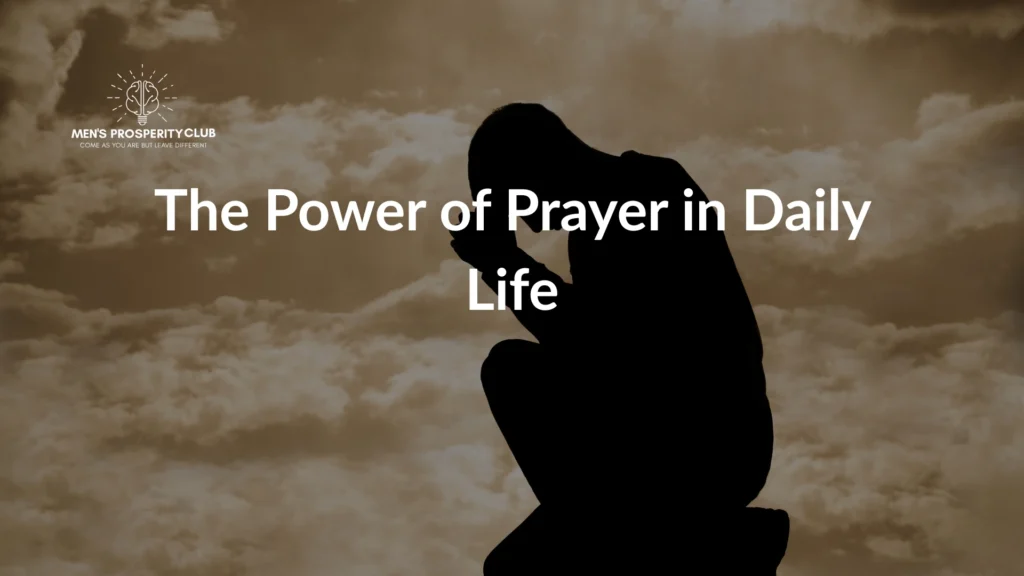Millions of people across different faiths discover solace, strength and mental clarity through the ancient practice of prayer. Whether whispered quietly in the morning, spoken aloud during community gatherings, or reflected upon in moments of need, prayer transcends religious boundaries and offers profound benefits for our mental health and overall wellbeing.
Understanding Prayer Across Faiths
Prayer manifests differently across various religious and spiritual traditions, yet it consistently serves as a bridge between the human experience and something greater than ourselves. Christians engage in conversational prayer with God, whilst Muslims perform their five daily prayers (Salah) facing Mecca. Meanwhile, Buddhists practise meditation and chanting, Hindus recite mantras and offer devotions, and Jewish communities gather for structured prayers in Hebrew.
Despite these diverse expressions, prayer fundamentally connects us to our inner selves and provides a framework for processing life’s challenges. Moreover, it creates space for reflection, gratitude, and hope—essential components of psychological resilience.
The Mental Health Benefits of Regular Prayer
Stress Reduction and Emotional Regulation
Research consistently demonstrates that prayer activates the body’s relaxation response, effectively counteracting the harmful effects of chronic stress. When we engage in prayer, our breathing naturally deepens, our heart rate slows, and our muscle tension decreases. Consequently, regular prayer practice helps regulate cortisol levels and reduces anxiety symptoms.
Furthermore, prayer provides a healthy outlet for expressing difficult emotions. Rather than bottling up feelings of anger, sadness, or fear, individuals can articulate these experiences through prayer, creating emotional release and promoting psychological healing.

Enhanced Focus and Mindfulness
Prayer cultivates mindfulness by anchoring our attention in the present moment. Whether through repetitive phrases, focused breathing or contemplative silence, prayer practices train the mind to resist distracting thoughts and develop sustained concentration.
Additionally, this enhanced focus extends beyond prayer time, improving our ability to tackle daily tasks with greater clarity and purpose. Many practitioners report feeling more centred and less scattered after establishing consistent prayer routines.
Building Resilience and Hope
During challenging times, prayer offers a powerful coping mechanism that builds psychological resilience. Through prayer, individuals often discover renewed perspective on their difficulties, finding meaning in suffering and hope for the future.
Moreover, prayer connects us to something larger than our immediate circumstances, reminding us that we’re part of a broader spiritual community. This sense of connection provides comfort during isolation and strength during adversity.
Integrating Prayer into Modern Daily Life
Morning Practices for Mental Clarity
Starting each day with prayer sets a positive tone and creates mental space for intention-setting. Whether through traditional morning prayers, personal meditation, or simple gratitude practices, these moments of reflection help organise thoughts and priorities.
Similarly, morning prayer can include affirmations about the day ahead, requests for guidance, or expressions of thankfulness for rest and renewal. These practices particularly benefit individuals struggling with anxiety about upcoming challenges or depression that makes mornings difficult.
Workplace Spirituality and Stress Management
Prayer doesn’t require formal religious settings to be effective. Brief moments of silent prayer or meditation during busy workdays can reset mental state and provide emotional balance. Furthermore, these micro-practices help maintain perspective during stressful situations and improve decision-making capabilities.
Additionally, many professionals find that incorporating prayer into their lunch breaks or commute transforms these transitional periods into opportunities for spiritual renewal and mental refreshment.
Evening Reflection and Sleep Quality
Evening prayers often focus on reflection, forgiveness and gratitude—practices that promote better sleep quality and emotional processing. Through reviewing the day’s events in a spiritual context, individuals can release tension, process conflicts constructively, and cultivate appreciation for positive experiences.
Subsequently, this practice of evening reflection helps quiet racing thoughts that often interfere with restful sleep, particularly for those dealing with anxiety or work-related stress.
Prayer and Community Mental Health
Collective Prayer and Social Support
Group prayer, whether in mosques, churches, temples or informal gatherings, strengthens social bonds and creates supportive communities. These connections prove vital for mental health, as they combat loneliness and provide networks of care during difficult times.
Furthermore, communal prayer experiences often include shared meals, conversations, and mutual support that extend the benefits beyond the prayer session itself. These social aspects particularly benefit elderly individuals, new parents, and those facing major life transitions.
Intercession and Compassion Development
Praying for others cultivates empathy, compassion, and a sense of global connection. This practice shifts focus away from personal troubles and towards the wellbeing of family, friends, and even strangers facing difficulties.
Moreover, intercessory prayer develops emotional intelligence and strengthens our capacity for loving relationships. Regular engagement in prayer for others often leads to increased volunteering, charitable giving and community involvement.
Scientific Perspectives on Prayer and Wellbeing
Neurological Research Findings
Neuroscientific studies reveal that prayer activates brain regions associated with attention, compassion, and emotional regulation. Brain imaging shows increased activity in the prefrontal cortex and decreased activity in the amygdala during prayer, suggesting reduced fear responses and enhanced cognitive control.
Additionally, regular prayer practice appears to strengthen neural pathways related to empathy and self-awareness, potentially explaining the personality changes often observed in committed practitioners.
Physiological Health Improvements
Beyond mental health benefits, prayer correlates with improved physical health outcomes, including lower blood pressure, enhanced immune function, and reduced inflammation markers. These physiological improvements likely result from the stress-reduction effects of prayer combined with the social support typically associated with religious communities.
Consequently, individuals who pray regularly often experience better overall health outcomes, which in turn supports their mental and emotional wellbeing.

Overcoming Common Barriers to Prayer Practice
Time Constraints and Busy Schedules
Many people believe they lack sufficient time for meaningful prayer, yet effective prayer doesn’t require lengthy sessions. Brief moments of prayer throughout the day—whilst walking, waiting, or transitioning between activities—can provide significant benefits.
Furthermore, integrating prayer into existing routines, such as praying during morning coffee or before meals, makes the practice more sustainable and less burdensome.
Doubt and Spiritual Questioning
Periods of doubt or spiritual questioning don’t negate the mental health benefits of prayer. Indeed, many find that honest prayers expressing uncertainty, anger, or confusion provide emotional release and clarity during difficult spiritual seasons.
Similarly, prayer can accommodate different belief levels and spiritual understandings, making it accessible even for those exploring their faith or questioning traditional teachings.
Embracing Prayer as a Wellness Practice
Prayer emerges as a powerful tool for enhancing mental health and overall wellbeing, regardless of specific religious affiliation or belief system. Through its capacity to reduce stress, enhance focus, build resilience, and foster community connections, prayer addresses many of the mental health challenges prevalent in contemporary society.
Whether approached as a traditional religious practice or adapted as a secular mindfulness technique, prayer offers accessible, cost-effective support for mental wellness. As we navigate an increasingly complex world, the ancient wisdom of prayer continues to provide relevant, practical benefits for modern mental health challenges.
By incorporating prayer into our daily routines, we create opportunities for reflection, connection, and renewal that support not only our spiritual development but also our psychological resilience and emotional wellbeing.




